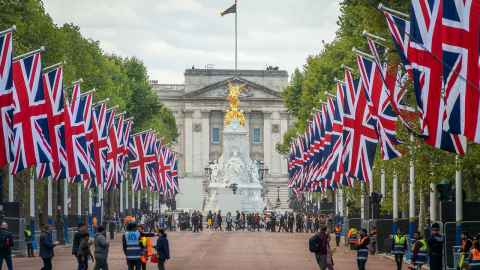Abolishing something is easy; rebuilding from scratch is hard
29 September 2022
We should give the new King a chance to see how the Commonwealth can evolve in order to facilitate openness, fairness, and to ensure there's opportunity to discuss injustices, writes Dr Sneha Gray.

As a first generation Indian New Zealander, I have been reading the varied emotions evoked by the death of Her Majesty Queen Elizabeth II over the past couple of weeks.
Among the million cries of God Save The King were some murmurs about trauma caused by the old British Raj, the Kohinoor Diamond, and how the Queen is responsible for past trauma.
These very honest raw feelings of hurt then progress to herald the need for republics and the “return” of artefacts.
As a remnant of the old British Raj, I truly sympathise with and understand the trauma caused as I’ve experienced the aftereffects to some degree myself. The ruthlessness of colonial rule was wrong.
While sharing the pain is certainly a necessary step in starting conversations towards healing, I wonder if we should now take it a step further and find constructive, implementable solutions which all parties find workable.
Instead, if we continue down the narrow-sighted path of “death to the monarchy” without truly considering the alternatives, we may have a new system, but one that isn’t any better, if not worse, and one with no historical premise or accountability to ensure healing to those that are hurting. It may also question agreements or treaties made by the British Crown with various groups.
Though the atrocities of the past do break my heart, unlike in the colonial systems of the Romans, the Persians or other dynasties, we’ve still got some aces we can play with our current constitutional system through the Commonwealth.

If the crowds of mourners are anything to go by, we now have people from all creeds and races feeling a sense of belonging with the old imperial Queen, indicating that the new King has a unique opportunity to embrace and rebuild the commonwealth.
This means we, whether the coloniser or the colonised, the marginalised or those in power, should have the openness and willingness to work together to create a brighter future for all of us.
Instead of creating newer untested systems, I think we should first use the Commonwealth to air grievances and find winning solutions as we move forward.
With the passing of the Queen, we have an opportunity to carve out a new united path. We should at least give the new King a chance to see how the Commonwealth can evolve into an organisation that can facilitate openness, fairness, and the opportunity to discuss injustices.
Any grievances and righting past wrongs must be based on clear evidence, with the attempt to create a desired future and not reinvent past history based on personal biases.
The Kohinoor diamond is a clear example of an emotive subject where various parties from different counties claim ownership of the jewel. Making decisions based on individual passions and versions of history can only create divisions and will not solve anything. Instead, every change must be weighted on whether it is beneficial for the good of all in the present and the future.
Now is the time to reimagine our futures and put aside past biases to create places where everyone thrives regardless of race, creed or economic or social standing. But this can only happen if we all put aside our biases and at least initially work with what we’ve got.
Perhaps this newfound unity and forgiveness can evolve into or create a new system in the future that is founded on the basis of mutual trust, respect and dignity for all.
Dr Sneha Jessica Gray undertook her PhD at the University of Auckland’s Business School. Her research looks at how place identity is reimagined over time.
This article, first published in the New Zealand Herald, reflects the opinion of the author and not necessarily the views of Waipapa Taumata Rau University of Auckland.